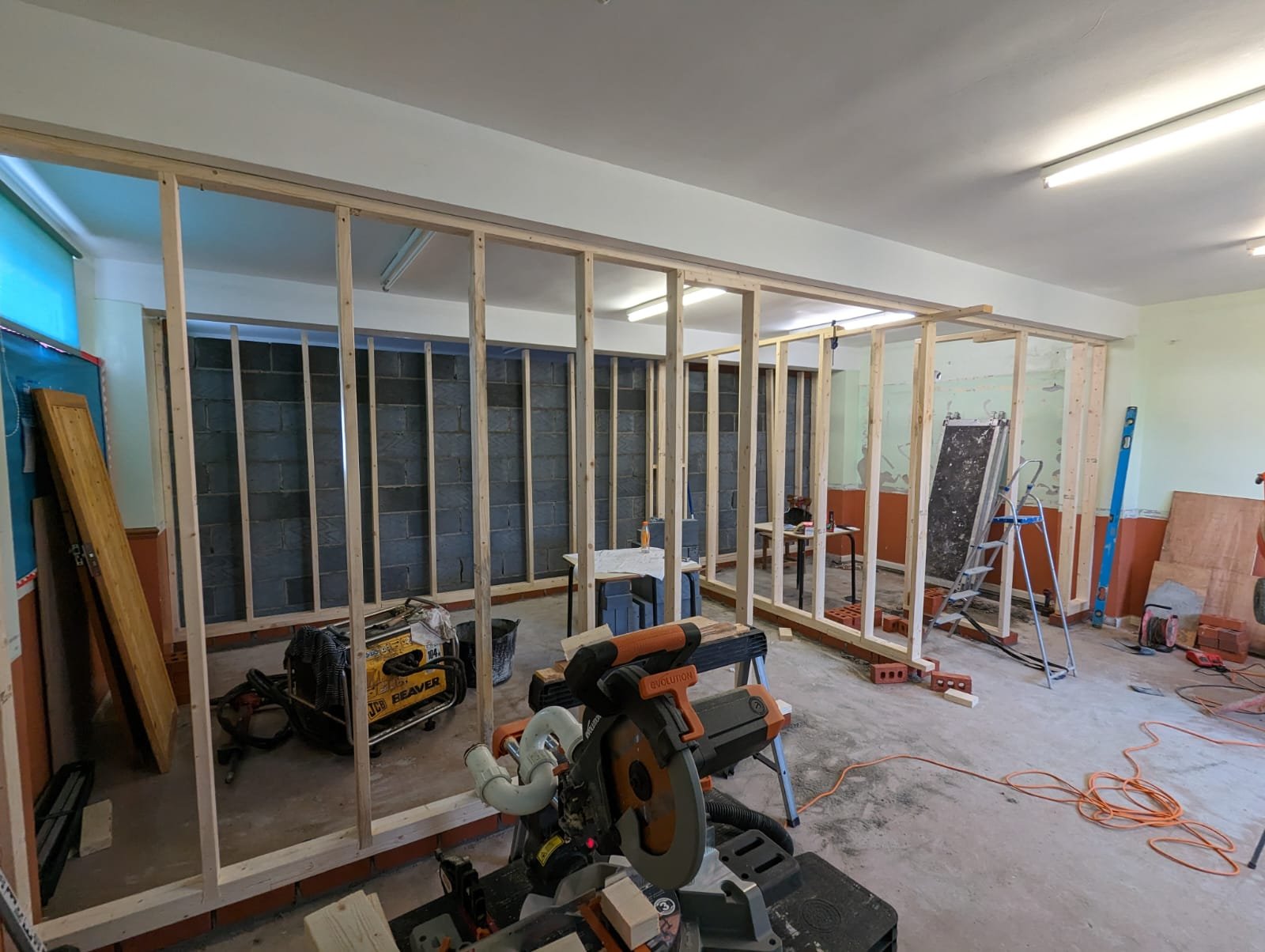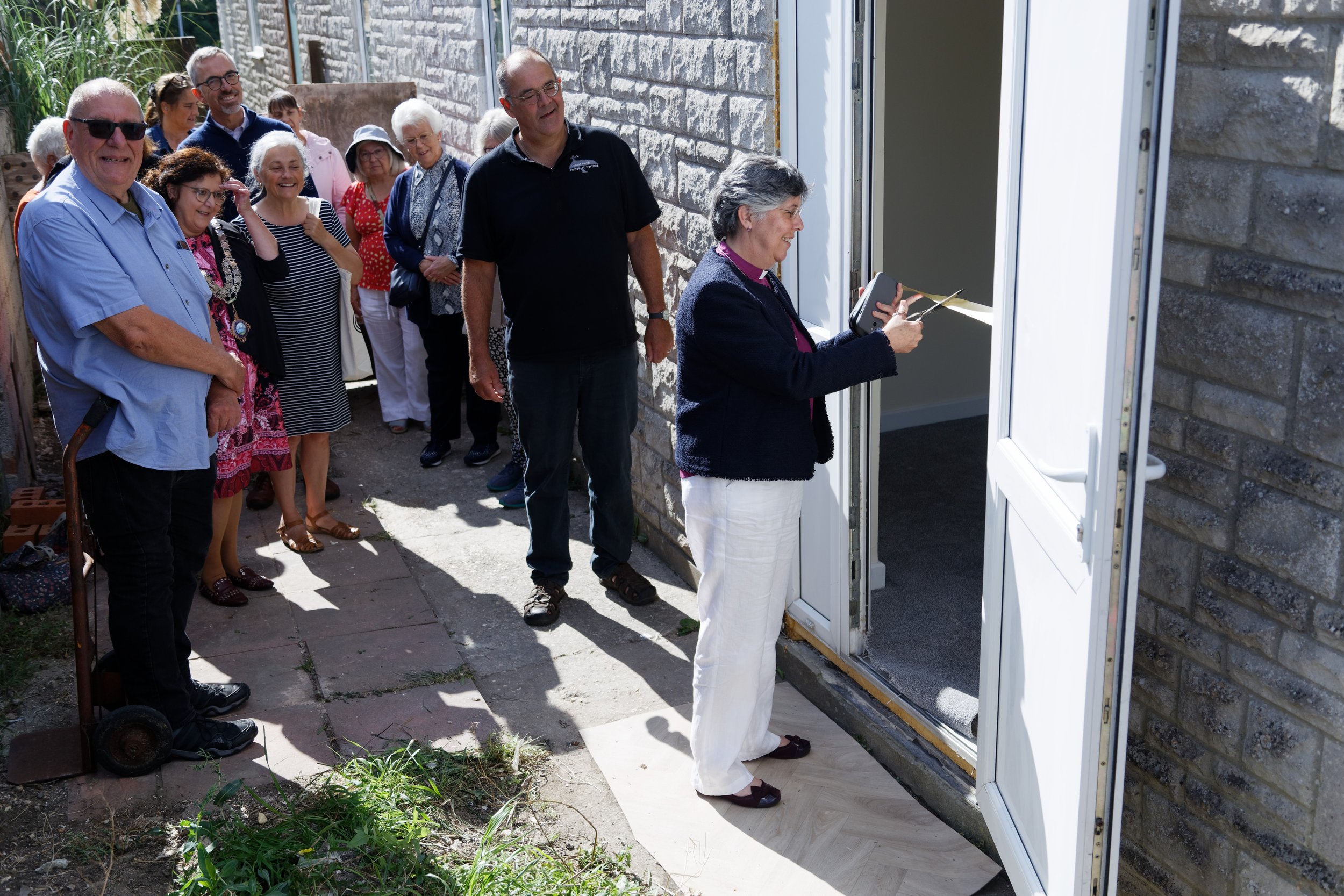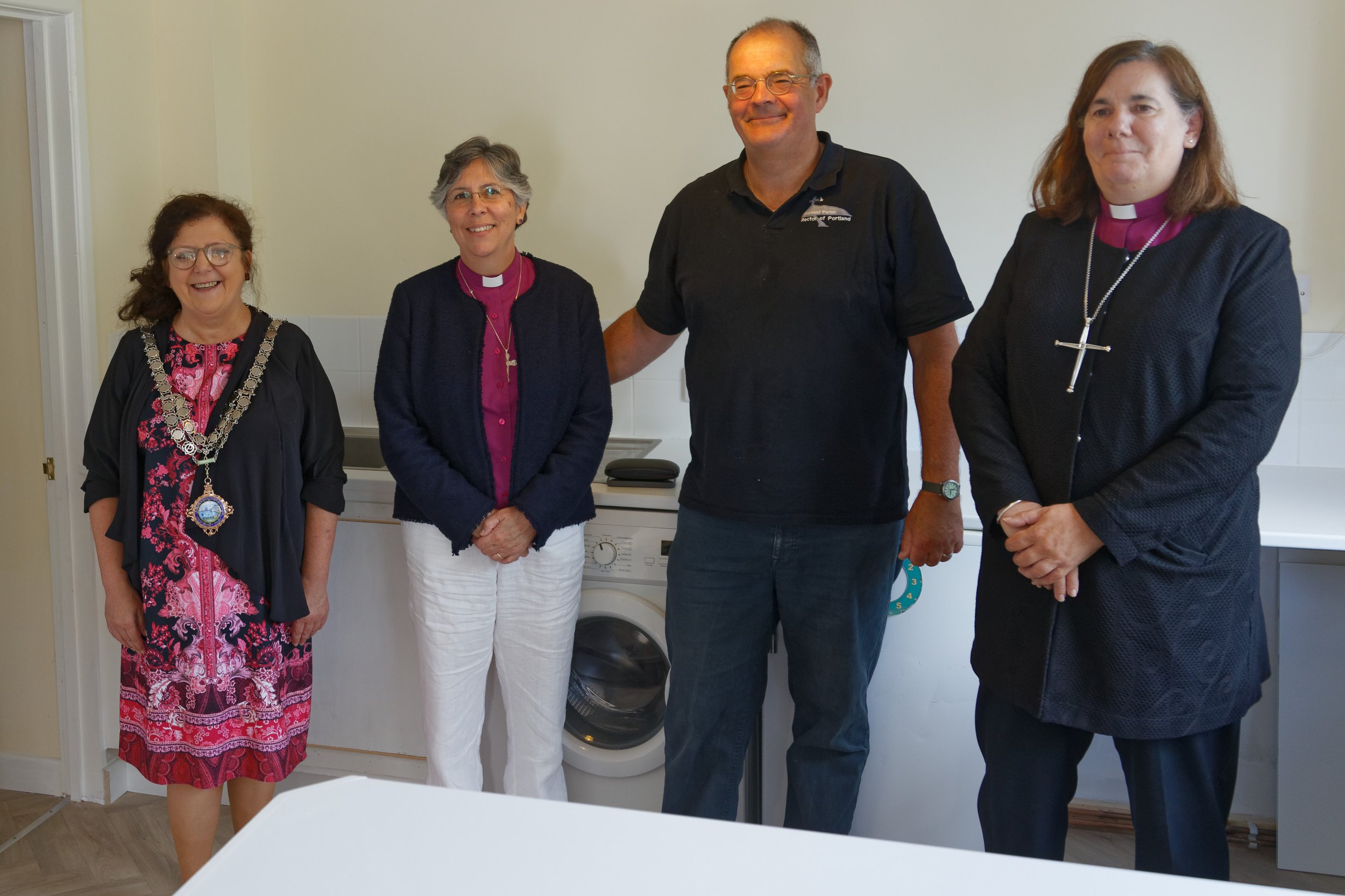St Andrew’s Church, Portland
The Story in Brief
Seeing the opportunity to meet local need - rather than sell off their church hall, they chose to raise funds and pay a local builder to convert it into two flats…
A summary is below; read the full version here >
-
Starting point
In 2018, Portland parish was struggling financially and St Andrew’s Church Hall was underused. The parish decided to repurpose the hall into two single-bedroom flats for market rent, adding to the existing rental flat above. At the same time, there was a growing housing shortage, especially for young people, leading to many having to leave the island due to a lack of affordable housing, which affected community cohesion and employment.
-
The plan
By June 2021, after receiving planning permission, the parish reevaluated their original plan. Inspired by the ‘Coming Home’ report, they decided to make the flats affordable for young people to help them stay near their families.
-
The journey
The PCC obtained quotes from local builders and set a fundraising target of £110k. Over 18 months, they raised £72k. They considered a loan but rejected it due to the long-term liability.
The breakthrough came when a builder who had recently joined the congregation offered to complete the work for just £58k. Construction began in early 2023, but new building regulations and inflation caused cost overruns and delays.
Bishop Guli officially opened the flats in September 2023, though the first young tenant only moved in by February 2024, and work is still continuing on the second flat, as the original builder abandoned the project.
-
Resources
Funding came from multiple sources. Dorset County Council gave £40k, and £10k each was donated by Garfield Weston Foundation, the Valentine Trust and the Diocese of Gloucester.
Additionally, Portland Parish donated £12k, and the vicar and PCC oversaw the project.
-
Keys to success and biggest challenges
The project succeeded due to strong relationship building by the vicar and PCC, which garnered support from local stakeholders. The decision to align the project with the ‘Coming Home’ report made the flats genuinely affordable, fulfilling the church’s ministry goals. Perseverance was key in overcoming various setbacks.
The main challenges included rising building costs, changes in building regulations, and difficulties in finding reliable contractors.
-
Final outcomes
The project resulted in two new affordable flats for young people, strengthened the church’s reputation in the community, and provided the PCC with additional income for ministry.
Interested in more detail? Read the full story here.

Driveway - before

Driveway - after

Remodelling under way

Bishop Guli cuts the ribbon to open the flats

Bishop Guli and the rector of Portland, Tim Gomm, with the mayor of Portland and bishop of Sherbourne

St Andrew's Church, Portland


